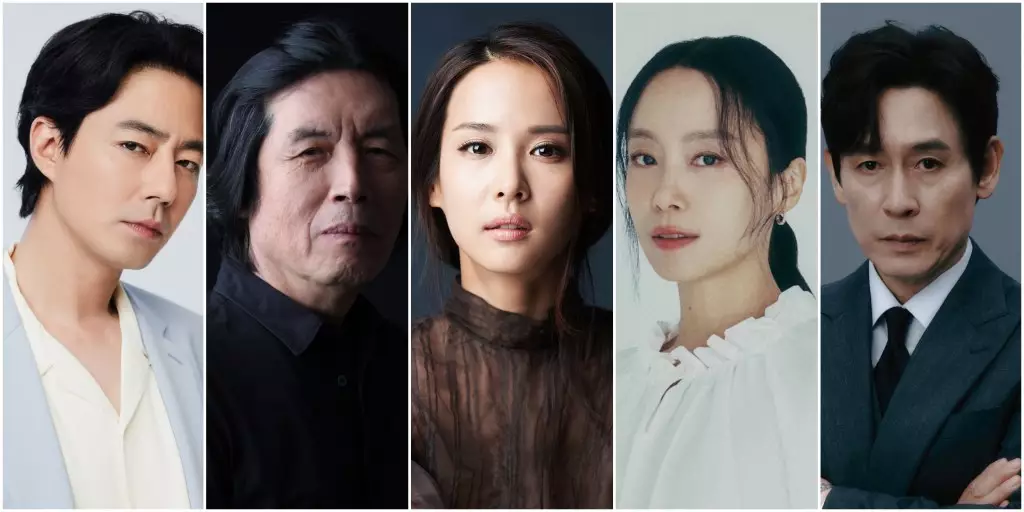The world of cinema has long anticipated the return of Lee Chang-dong, a director whose work challenges and enriches Korean film landscape. After an eight-year hiatus, Lee’s comeback is not merely a return to directing but a statement that profound storytelling still holds its place amidst a rapidly evolving industry. His absence was felt deeply by cinephiles craving more of his incisive narratives that dissect human nature and societal flaws with surgical precision. Now, with “Possible Love” on the horizon, Lee reasserts his role as a visionary capable of capturing life’s intricate layers, even in a commercialized era increasingly dominated by formulaic filmmaking.
A Critical Examination of Lee’s Impact and Artistic Evolution
Lee’s previous films, such as “Oasis” and “Poetry,” showcased his unique talent for portraying the subtleties of Korean society and the emotional depths of his characters. Despite their poetic veneer, his films deliver raw, often unsettling truths that challenge audiences to confront uncomfortable realities. His use of quiet, contemplative scenes juxtaposed with stark societal critique signifies a filmmaking philosophy rooted in honesty rather than spectacle. This approach is rare, especially at a time when Hollywood-style blockbusters often prioritize spectacle over substance. Lee’s work underscores that meaningful cinema must provoke reflection, a stand that feels increasingly vital in a world obsessed with surface-level entertainment.
The Significance of His Return for Progressive Cinema
Lee’s comeback signals a shift toward more conscious storytelling within the Korean film industry. His collaboration with esteemed actors like Jeon Do-yeon, who embodies resilience and depth, hints at a film that will explore complex human relationships rather than simplistic narratives. The chosen theme—intertwined lives of two contrasting married couples—seems to be a canvas for examining social divisions, personal struggles, and the fragile nature of human connection. This perspective aligns with a center-wing liberal outlook that champions nuanced understanding over polarizing rhetoric. Lee’s films have always navigated the middle ground—questioning societal norms without descending into cynicism or nihilism—an approach that remains desperately needed in today’s heated political climate.
Why “Possible Love” Could Catalyze Cultural Discourse
In reviving his career with “Possible Love,” Lee Chang-dong demonstrates that cinematic authenticity should not be sacrificed for commercial viability. His choice to focus on intimate portrayals of human conflict reflects a broader societal need for empathy and introspection. The film’s cast, reuniting Lee with star Jeon Do-yeon and featuring other acclaimed actors like Zo In-sung and Cho Yeo-jeong, signifies a commitment to portraying authentic, multi-dimensional characters that challenge stereotypes. This film could serve as a vital cultural moment, fostering dialogue about the underlying societal fractures we often choose to ignore. It is more than entertainment; it is an act of cultural resistance against the trivialization of important social issues.
A Necessary Reminder of Art’s Power in Social Progress
Lee Chang-dong’s return is not only a professional milestone but a moral stance against the commercialization of art that dilutes the transformative power of cinema. His work consistently pushes boundaries, insisting that film can and should reflect the complexities of human existence. As filmmakers in a fast-paced, profit-driven industry are often tempted to prioritize shallow narratives, Lee’s comeback reminds us that truth, empathy, and societal critique remain vital. His ability to blend poetry with social realism ensures that his films are not mere escapism but catalysts for critical thought and societal change.
In embracing his unique voice after nearly a decade, Lee Chang-dong reaffirms that cinema’s greatest strength lies in its capacity to challenge, to reveal uncomfortable truths, and to foster genuine understanding—values that are essential for a more compassionate, conscious society.

